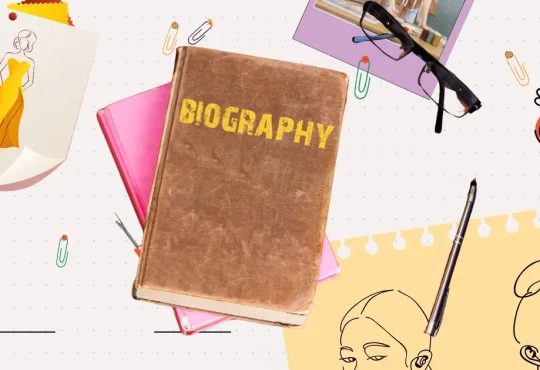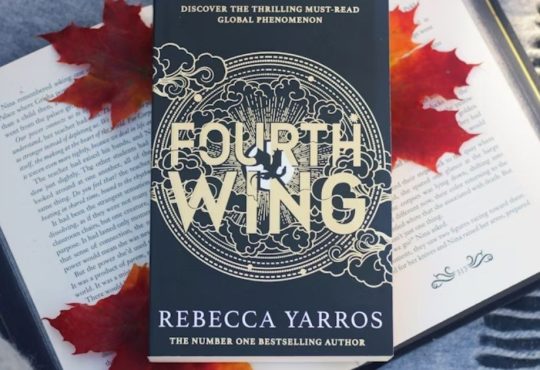Certain books naturally lend themselves to screen adaptations, and the entertainment industry has taken notice. From literary award-winners to viral social media sensations, a new wave of adaptations is set to appear on streaming platforms and in theaters in 2025 and beyond. These works combine thought-provoking narratives with cultural significance, often generating widespread discussion upon release. The upcoming adaptations offer a curated selection of stories poised to make a notable impact in both literature and visual media.
Why Book-to-Screen Adaptations Matter
Before diving into the upcoming titles, a question arises: why do book adaptations so often feel like cultural events? The answer extends beyond the notion of Hollywood running short on ideas. Adaptations resonate because they tap into something deeper—a universal desire for stories that balance the comfort of familiarity with the thrill of reinvention. Here’s what makes them such a big deal:
- Built-in fandoms with passion to spare – Long before the cameras roll, a devoted readership is already buzzing. These fans create early momentum, dissect casting announcements, and fuel excitement across TikTok, Reddit, and bookish corners of the internet. Studios know they’re not starting from scratch—they’re harnessing an army of readers eager to see their beloved stories brought to life.
- Richer, layered storytelling – Books aren’t written with runtime restrictions in mind. They have sprawling worlds, complex characters, and internal monologues that span pages. That’s why so many of today’s most successful adaptations take the form of limited series rather than two-hour films—giving room for the nuance and depth that made the books so memorable in the first place.
- Cultural relevance in real time – Books often lead the way in tackling the cultural conversations of their era—whether about identity, politics, gender, or technology. When adapted, those conversations break out of the book club and land squarely in mainstream pop culture. Suddenly, topics that once seemed niche are front-and-center on your Netflix homepage or trending on Twitter.
- A shared experience – Reading can be intimate and personal, but watching together is communal. Adaptations turn solitary book moments into collective experiences—something you can text your friends about, binge with your roommate, or debate around the dinner table.
In short, book-to-screen adaptations aren’t just about translating text to film. They’re about amplifying ideas, expanding audiences, and creating cultural flashpoints where everyone—from the diehard bookworms to the casual Netflix scrollers—gets to join the same conversation.
1. Sunrise by Michael Koryta – A Haunting Thriller Heads to Screen
For enthusiasts of atmospheric thrillers, Sunrise stands out as a notable adaptation. Adapted from Michael Koryta’s novel, the narrative centers on a community shaken by a mysterious disappearance in rural America. Combining suspense with emotional depth, the series aligns well with the conventions of prestige television.
- Why it’s buzzworthy: Koryta has a reputation for cinematic writing, and this adaptation promises to deliver the same eerie, slow-burning tension that made the book unputdownable. Think Sharp Objects meets Mare of Easttown.
- Who’s behind it: Industry reports suggest a potential streaming platform acquisition, raising the possibility of a moody, binge-worthy miniseries designed to fuel online discussion and sustain cultural buzz for weeks.
This is one adaptation where “just one more episode” will turn into three before you know it.
2. Detransition, Baby by Torrey Peters – A Groundbreaking Story on Identity
Torrey Peters’ Detransition, Baby was a finalist for the National Book Award– and emerged as one of the most discussed literary works of the year. Now, it’s heading to TV, bringing its raw, witty, and profoundly human exploration of gender, family, and love to a broader audience.
- Why it’s essential: Representation matters, and Detransition, Baby is poised to be one of the most nuanced portrayals of trans and queer identities on screen. It’s not just a story about transition—it’s a story about parenthood, chosen family, and the messy, beautiful complexity of human relationships.
- Why fans are excited: The book already sparked countless book club debates and social media think-pieces. On screen, it has the potential to do what shows like Transparent and Pose did—expand empathy while entertaining.
Expect this adaptation to be both a cultural conversation starter and an emotional gut punch.
3. The Shards by Bret Easton Ellis – 1980s Hollywood Noir
From the author of American Psycho comes The Shards, a semi-autobiographical novel set in 1980s Los Angeles. With its mix of sun-drenched glamour and creeping dread, it’s a story tailor-made for a screen adaptation.
- Why it’s buzzworthy: Ellis knows how to capture the dark undercurrents of youth, privilege, and obsession. The Shards adaptation will likely combine glossy aesthetics with unsettling suspense—a combo that’s irresistible for fans of noir and psychological thrillers.
- Cultural tie-in: Nostalgia for the 1980s hasn’t slowed down, and with shows like Stranger Things proving the decade still sells, The Shards offers a darker, edgier lens on that era.
This one’s for viewers who like their coming-of-age stories with a side of danger.
4. The Power Season 2 – Broadening the Scope of Naomi Alderman’s Vision
Okay, technically, this isn’t a brand-new adaptation, but it is an exciting continuation. Naomi Alderman’s The Power, which imagines a world where women develop the ability to emit electrical energy, made waves with its first season. Season 2 explores the political and social consequences arising from that transformative event.
- Why it’s still fresh: Alderman’s book is packed with untapped material, so the adaptation is poised to evolve into something even richer than Season 1.
- Why it matters: The themes—power dynamics, gender politics, systemic change—feel especially urgent in 2025’s cultural climate.
This is one of those adaptations where the story on screen surpasses the original book in scope.
5. Tomorrow, and Tomorrow, and Tomorrow by Gabrielle Zevin – Where Gaming and Emotion Converge
Gabrielle Zevin’s Tomorrow, and Tomorrow, and Tomorrow was one of the breakout novels of the past few years, blending gaming culture with a deeply emotional story about friendship, creativity, and ambition. Hollywood couldn’t resist.
- Why it’s buzzworthy: The adaptation promises to capture both the retro-gaming nostalgia and the universal themes of love, loss, and collaboration. It’s not a “video game story” so much as a human story told through the lens of gaming.
- Why it matters: This one has mainstream and niche appeal. Gamers will connect with the cultural references, while the emotional depth will draw in general audiences.
Don’t be surprised if this adaptation earns awards buzz—it’s the rare story that feels both intimate and epic.
Adaptation Trends Defining 2025
Placed side by side, these five upcoming adaptations reveal a larger pattern. Each project extends beyond being a standalone release in an already crowded streaming market, forming part of a broader storytelling trend that reflects both the cultural hopes and anxieties shaping 2025. Here’s what’s emerging:
- Identity on screen – With Detransition, Baby, adaptation is doing more than retelling a beloved novel—it’s breaking ground. Stories about gender, family, and chosen community are moving from niche literary circles into mainstream living rooms. That shift matters. It signals that representation isn’t just “nice to have” anymore; it’s a defining pillar of what audiences expect.
- Dark nostalgia – Both The Shards and Sunrise lean into the allure of the past, but not in a rose-colored-glasses way. Instead, they highlight the shadows under the neon lights and small-town facades. This isn’t nostalgia for comfort—it’s nostalgia for tension, a reminder that the past is often as unsettling as it is glamorous.
- Speculative power plays – The Power keeps pushing viewers to reimagine society when traditional power structures flip. What happens when women suddenly hold the physical upper hand? Sci-fi here isn’t about escape—it’s about reframing the present, asking viewers to grapple with politics, justice, and gender dynamics in ways that hit close to home.
- Stories of creativity and connection – Then there’s Tomorrow, and Tomorrow, and Tomorrow, which threads gaming, art, and ambition into a deeply human narrative. Amid all the chaos of 2025—climate, politics, technology—this adaptation reminds us that creativity is still a bridge. It’s proof that stories about friendship and collaboration can feel just as epic as battles for survival.
Together, these trends make something clear: the adaptations defining 2025 aren’t just built for spectacle. They’re designed to challenge, to comfort, and to spark conversation. They reflect a cultural hunger not only for strong narratives but for narratives that make us pause and ask bigger questions about identity, power, memory, and what it means to connect in a fractured world.
Why Book Lovers Should Pay Attention
For readers, adaptations are basically a two-for-one deal. First, you get to savour the book in its purest form—the author’s words, the pacing, the world built entirely in your imagination. Then, months (or years) later, you get the thrill of seeing how an entirely different creative team reinterprets that same story. It’s like attending a concert where your favourite song is played with a surprising new arrangement—you already know the melody, but you get to fall in love with it all over again.
Part of the appeal lies in the recognition and prestige associated with early or in-depth engagement. Reading the book before the adaptation drops gives you a cultural head start. Suddenly, you’re the go-to friend for whispered spoilers, inside jokes, and the ultimate trump card: “The book was better.” Even if the adaptation turns out brilliant, claiming the original version earns you bookworm street cred.
But the perks go beyond personal satisfaction. For culture junkies, adaptations act as shorthand for bigger conversations. A novel that may have seemed “too literary” or “too niche” for a casual reader becomes accessible when it’s bingeable on Netflix or trending on TikTok. Suddenly, your favourite story isn’t just yours—it’s part of a global dialogue. Those big ideas about identity, technology, or politics that once lived in book clubs are now sparking debates at dinner tables and online forums.
And then there’s the simple magic: the goosebumps you get when a beloved line of dialogue is spoken on screen, the thrill of recognizing a favourite scene brought to life, or the delight of seeing fan theories confirmed—or subverted. Even when filmmakers take liberties, there’s joy in watching someone else’s imagination collide with your own.
In short, book-to-screen adaptations aren’t just gifts for casual viewers. They’re love letters to readers—the chance to see your private reading experience transformed into a collective cultural moment.
Book Adaptations Poised to Spark Conversation
These upcoming adaptations from books are more than just entertainment—they’re cultural touchstones in the making. Whether it’s the eerie suspense of Sunrise, the groundbreaking identity exploration of Detransition, Baby, or the nostalgic ache of Tomorrow, and Tomorrow, and Tomorrow, each story promises to spark conversation far beyond the screen.





